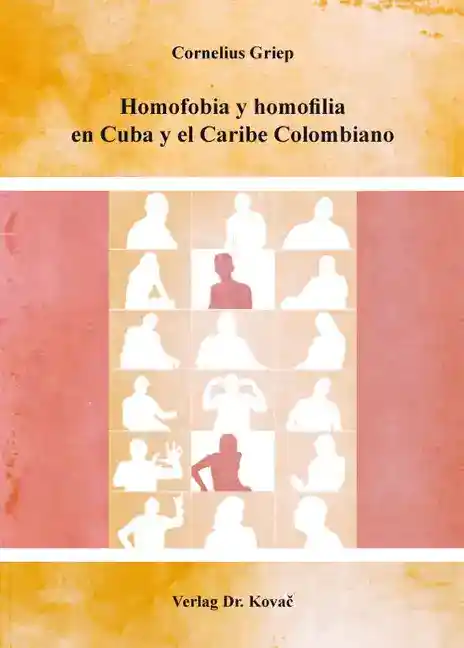Cornelius GriepHomofobia y homofilia en Cuba y el Caribe Colombiano
- in spanischer Sprache -
Gender Studies – Interdisziplinäre Schriftenreihe zur Geschlechterforschung, volume 26
Hamburg 2013, 230 pages
ISBN 978-3-8300-7540-0 (print) |ISBN 978-3-339-07540-6 (eBook)
About this book deutschenglishespañol
Homophobia – from repudiation through discrimination and in extreme circumstances even to open violence – is in the Caribbean still a trigger for social conflicts. Only a few years ago a series of gruesome murders of homosexuals occurred in Barranquilla and Cartagena de Indias. In this study two main research objectives are established: What is the level of acceptance of homosexuals? Do double standards with regard to homosexuality exist? The author carried out field researches and film recordings in the two biggest cities of the Colombian Caribbean coast, Barranquilla and Cartagena de Indias, the village Palenque de San Basilio, and two Cuban cities, Havana and Santa Clara. To study sociocultural and discursive manifestations of homophobia and tolerance of homosexuality a combination of linguistic and statistical techniques is used. The field data is compiled, analyzed and processed by means of the combination of the following methods: visual ethnographic techniques, discourse analysis, descriptive and inferential statistics. This methodological triangulation guarantees to structure the audiovisual data and interlink the obtained information in order to answer the research questions from different perspectives. The author designs new algorithms for data collection and processing. Later on he elaborates descriptive models for the understanding and illustration of factors that effect homophobia such as machismo, double standards and others concomitant with the acceptance towards homosexuals. In this way he visualizes its interrelation. The innovative part of this procedure is on the one hand the application of path analysis methods that is further developed through the introduction of α-formulas, that enable to represent these recursive linear models in a compact way. On the other hand these models constitute the convergence point between quantitative and qualitative results that are presented by means of film essays. This form of crossing over different types of research results is referred to by the author as cross representation. Inspired by the conviction that in contemporary sociocultural research scientific cognition not necessarily has to be provided exclusively through text anymore, the author using cross representation attains a new kind of communicating scientific knowledge. In order to demonstrate to the reader this innovative presentation, he has created the online presence http://cross-representation.com that interacts with this book. It contains supporting materials, such as audiovisual information, statistical computations, causal sociocultural models, graphics and other related studies.Keywords
causal modelscommunication studiescross examinationcross representation.discoursediscourse analysisdouble standardshomophiliahomophobiahomosexualitymachismomultimodalitypath analysissociologyIhr Werk im Verlag Dr. Kovač

Möchten Sie Ihre wissenschaftliche Arbeit publizieren? Erfahren Sie mehr über unsere günstigen Konditionen und unseren Service für Autorinnen und Autoren.
